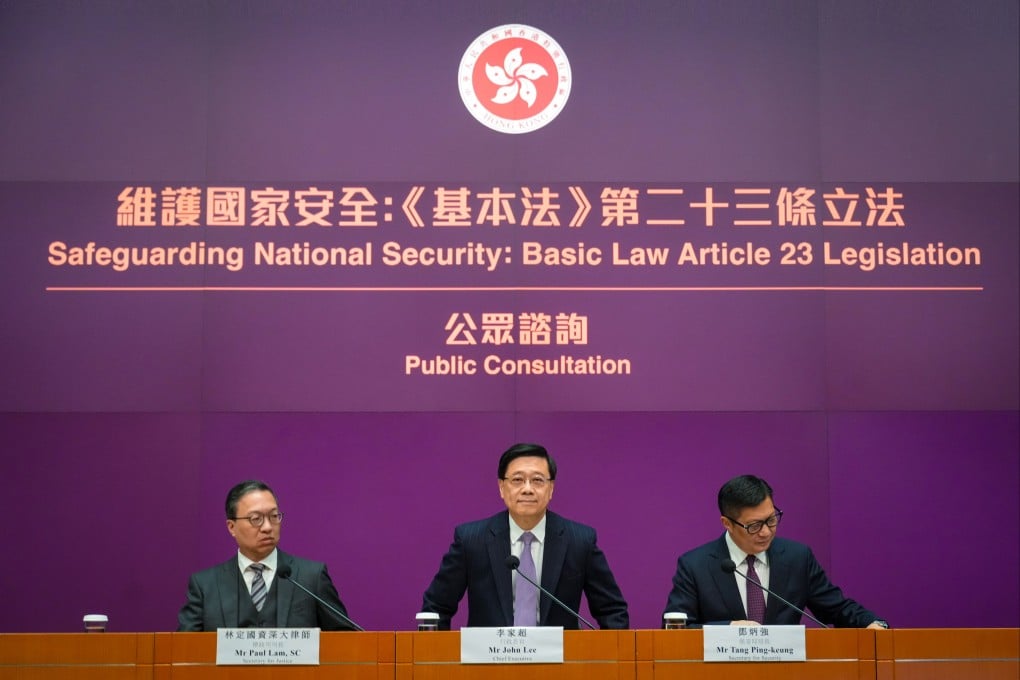Advertisement
Opinion | Article 23: how Hongkongers can have their say in national security
- From the UK and US to Singapore, the government decides what makes for a matter of national security. In Hong Kong, with the Article 23 consultation paper, we have a chance to speak up
Reading Time:4 minutes
Why you can trust SCMP
8

National security has historically been an enigma for the man in the street. Why is it important? Who is to decide what is a matter of national security? Why should my rights be restricted because of it?
Advertisement
Looking at some ancient laws in force today, one would be even more baffled. For example, UK treason laws prohibit the “giving” of “comfort” to the monarch’s enemies or any attempt to deprive the monarch of “the style, honour or royal name of the imperial crown of the United Kingdom”. Similar laws can be found in Hong Kong’s Crimes Ordinance, enacted in the colonial days.
National security laws understandably put the nation’s interest above individual rights: without safety of the nation, there cannot be safety of the individual. But in peace time, it is not immediately evident to people why national security laws have to be so sweeping. Importantly, people might wonder why the lines should always be drawn by the government and not by popular vote.
The concept of national security has undergone tremendous changes in recent years, in many cases becoming more sweeping than some ancient laws. We are no longer just talking about the king’s enemies or queen’s honour, but trade barriers, economic sanctions, hi-tech embargoes, and even academic and cultural exchanges.
Especially in the West, national security concerns seem to be everywhere and in every aspect of daily life. Yet people appear to have very little say in all this.
Advertisement
The UK in recent years has passed a spate of national security laws, giving the government alarming powers. Under the National Security Act 2023, on the secretary of state’s “reasonable” belief that someone is, or has been, involved in “foreign power threat activity”, that person can be detained up for to five years without notice or trial.

Advertisement
